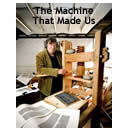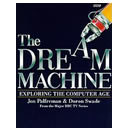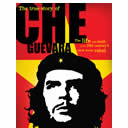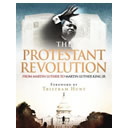The Machine That Made Us
 The Machine That Made Us is a documentary in which Stephen Fry examines the story behind the first media entrepreneur, printing press inventor Johann Gutenberg, to find out why he did it and how, a story which involves both historical inquiry and hands-on craft and technology.
The Machine That Made Us is a documentary in which Stephen Fry examines the story behind the first media entrepreneur, printing press inventor Johann Gutenberg, to find out why he did it and how, a story which involves both historical inquiry and hands-on craft and technology.
Fry travels across Europe to find out how Gutenberg kept his development work secret, about the role of avaricious investors and unscrupulous competitors and why Gutenberg's approach started a cultural revolution. He then sets about building a copy of Gutenberg's press.




In 1454, Gutenberg developed the most sophisticated printing press of the Middle Ages. However, movable brass type was in use in Islamic Spain 100 years prior, and that is where the West's first printing devices were made. Just saying.
couldn't disagree more, movable grass isn't a thing. just saying.
Like Rob I'm also a letterpress machinist. And I also think the invention of casting type from metal was the great step forward, with the press to take advantage of it. The Chinese were certainly printing earlier but before the casting of type where were printed books? Few and far between. This film reminds us of the fact that in just 50 years, millions of books were printed, because of Gutenberg. This is a subject very close to a printers heart and it is great to see Mr Gutenberg get recognition in this day and age for his truely pioneering work.
A great movie!
Which one?! I've been looking for something new to watch, hoping to add to my list :)
As for the movable type argument. Modifying a tool is not the same as inventing it. That's like saying Steve Jobs invented the telephone...no, he just changed it (frankly, not even the first smart phone). Jobs didn't invent the phone, smart or not, and Gutenberg didn't invent the printing press, movable type or not. Or how about Toyota invented the automobile instead of Ford? They innovated the automobile so much, might as well give them credit right?
The reason the Chinese didn't invent movable type? They don't use the alphabet! They use characters that don't break up the way individual letters do, so they invented a press that fit their needs. That isn't to say it's inferior to the movable type printing press though. And it certainly wasn't "unfinished."
To have invented something, you would have had to have made it first. Whether the Chinese printing press made it to Europe or not, the Chinese printing press was still invented FIRST. It's the same eurocentric view that says Columbus discovered the Americas...how exactly do you discover something that had already been discovered? Not only did the American Indians discover it thousands of years before, there were also the vikings and now scholars are saying that evidence shows the Chinese might have travelled to the Americas decades before Columbus too.
If you want to argue that Gutenberg INDEPENDENTLY invented the printing press, then say so. But stop saying he invented it period and give the Chinese as much credit (even though they deserve MORE credit).
Actually, One needs to define printing. To this point all that has been mentioned is Letterpress. The invention Lithography (surely you can patch the Greek: Lithos = stone, graphein = to write) is credited to Alois Senefelder, who discovered the HIGHLY TECHNICAL and DIFFICULT to UNDERSTAND chemical property that made it possible to print something without raised letters, or with inset engraving in 1796. Using a flat stone, he took advantage of the simple fact that grease and water do not mix, so he devised an oil based ink, which would hold its position on the stone when a mildly acidic water was applied to the surface. It had made possible the printing of intricate images, without the tediousness of engraving the same image, now an artist could simply "draw" an image onto the stone, or later flat metal, and it would reproduce without engraving.
Once upon a time, I worked at the University of Kansas Printing Service. We kept an older, hand fed letterpress for highly official, University Sealed printed matter, and a couple of Heidelberg Windmill presses for die-cutting and Numbering. We also had a Museum of Printing. I have in my private possession, about 3/4 of all the letterpress blocks and dingbats created at The University of Kansas, including some old Acid Etched photos on wood backed copper, of buildings that dont exist anymore.
I lay all that out for one reason. Rob, who still does letterpress, is one of very, very few that still even know what that is, and it is an Essential Art that, though faster, offset cannot match for elegance. Rob, do you guys still melt pigs and cast your own letters on a lino? I love those machines.
Anyway, Gutenberg, Chinese...etc.... Rob will tell you that Senefelder's process dominates the printing world to this day...and its not remotely close. Of course it underwent Mechanization, and the Lead Type, Woodcut and Acid Etch work is 99% replaced by Macintosh Computers sending images through a Raster Image Processor (RIP), onto a Platesetter, and in less than 15 minutes, you can have 32 pages of a color magazine ready to go to press, with plates that are sensitized to accept ink where needed, and carry moisture where there is no image. Offset Lithography, which Senefelder created, utilizes presses that can produce 20,000 finished full color sheets per hour, and big Web presses can almost triple that speed.
So define printing. The press itself is the means to an end. The first to invent printing was whoever first drew with a finger or a stick. The first to produce multiple copies were scribes. Yes there's the Chinese, and Gutenberg with their presses...all fine and good, but perhaps a Sumerian discovered a little Cuneiform clay block had some ochre or reddish liquid on it, and trying to clean it off, wipes it on his garment, and realizes it reproduced the image, and would until the ochre was consumed?
That last one is obviously conjecture, but not a tough leap to make, as, in 1976 I discovered if you took a magazine picture, saturate it with Arrid Extra Dry, then press it to another piece of paper, the image transfers, though coated stocks didn't always work great.
Thats a short and scattered history of Lithography. Im not going to argue it with anyone, I taught it for years, and no one here is paying me enough to go that deep into the weeds. If I've missed a date, or something glaring, I DO appreciate having my memory jogged, but if it starts with an attitude, disrespect or Ad Hominem attacks, no response will be issued.
Cheers!
the chizzle part is hilarious!
I'm intrigued--which scene?
no it wasn't.
I'm a letterpress printer and you all miss the point - Gutenberg invented movable type - the press had been around for eons - he was the son of a goldsmith and those skills helped him create the punch/casting box/lead type = he adapted the press from what was already there. Leo fender was an electrician who couldnt play the guitar and look what he came up with - lateral thinkers.
He mentions about the Chinese printing press and paper but it hadn't made it to Europe and if it had. His was a journey that decidedly changed EUROPE. A little light, yes, but enjoyable.
reading that gave me epilepsy
Always a joy to watch a Stephen Fry production, However my research dictates that the Chinese had developed printing technology well ahead of Gutenberg.
And my research dictates that the Chinese don't actually have smaller eyes, they just don't- k nvm my friends are telling me I probably shouldn't finish this sentence
I thought this doco was a bit light to be honest.
Seemed pretty heavy to me, but maybe you just lift more, I'm definitely more of a cardio boy if I do say so myself
Excellent presentation for an excellent topic. Fascinating! It is true what Stephen Fry says. I agree that I can imagine our world without cars or computers, but cannot imagine it without the printed word.
I feel the same man, but for cheese fries like dude they're just so flipping good I have them at least once a day. Cant image eating supper without them! And like my mom always says, "cheese fries over skinny thighs". Love that woman, anyways ill see you at school tomorrow bro!